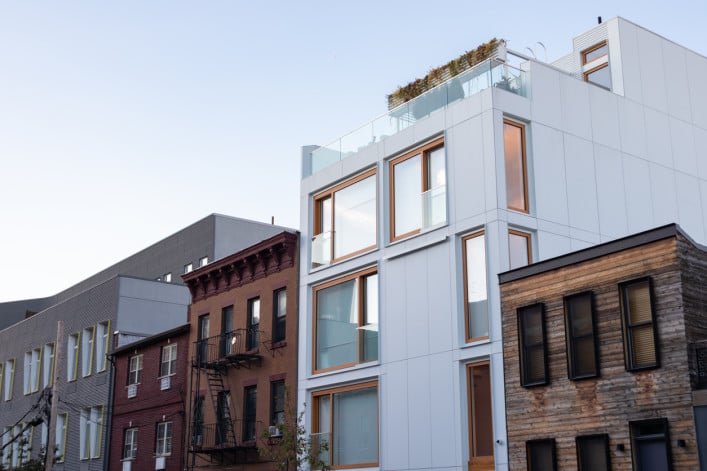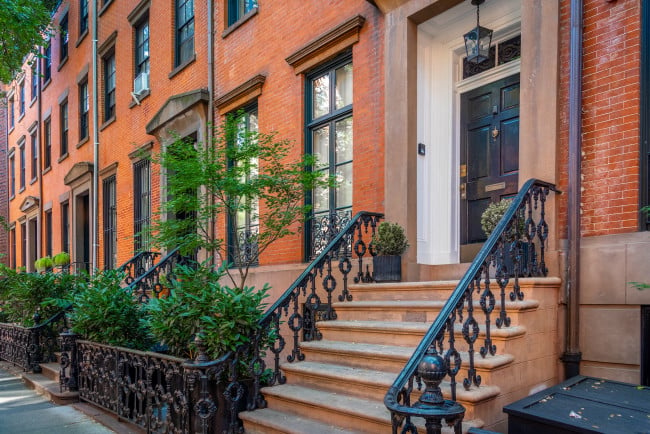What is a mortgage recording tax? Are there ways to reduce it?
- If you borrow more than $500,000, the tax is 1.925 percent of the mortgage
- You can reduce this tax with a CEMA loan if the lenders for both parties agree

If you buy a co-op you don't have to pay mortgage recording tax. You pay it if you're buying a condo or townhouse.
iStock
Buying a co-op, condo, or house in New York City means you can expect to pay several hefty fees and taxes as part of your closing costs. For example, you may have to pay a mansion tax—don’t be fooled by the name. You’re required to pay this if you’re buying a place at or above $1 million.
Then there’s the transfer tax, title insurance, a lien search (for a co-op), and—if you are using financing—a mortgage recording tax.
The reason you pay the mortgage recording tax is for "the privilege of recording a mortgage," according to the Department of Taxation and Finance. That’s one way of putting it.
[Editor's note: A previous version of this post was published in June 2024. We are presenting it again in case you missed it.]
How is mortgage recording tax calculated?
This tax is calculated as a percentage of the mortgage (not the purchase price). So if you borrow $500,000 or less, you pay 1.8 percent of the loan as a tax. If you borrow more than $500,000, you pay 1.925 percent. (Both of these figures include a 0.5 percent state levy, and New Yorkers are entitled to a $30 discount on their payment.)
“It can be extremely expensive,” says attorney Neil Garfinkel, managing partner at the law firm Abrams, Garfinkel, Margolis, Bergson. It’s also a tax you will have to pay if you refinance.
However, there are ways to save on the mortgage recording tax—or even avoid it altogether.
You won’t pay mortgage recording tax on a co-op
Buying a co-op spares you the pain of this tax. It only applies to real property—where your purchase gives you a deed. This is one of the reasons closing costs for co-ops are much lower than condos.
A CEMA, or mortgage assignment, reduces your payment
One way to reduce the amount of mortgage recording tax you pay is to do a financial maneuver called a mortgage assignment under a consolidation, extension, and modification agreement, also called a CEMA loan. In these situations the seller’s mortgage is assigned from one lender to another and the tax for the buyer is calculated on the unpaid principal.
Here's how it works: Say an initial mortgage was for $1 million and the seller paid it down over the time to $900,000. If the mortgage was then assigned for $1 million, the buyer would only pay mortgage recording tax on $100,000 at the reduced tax rate of 1.8 percent. You don't pay twice for the unpaid principal of the original mortgage when the loan is assigned.
Garfinkel says the assignment CEMA is “used all the time” as a means to reduce the mortgage recording tax payment. With an assignment, you are not tied to the terms of the old mortgage.
“The terms are changed, so if there was a prepayment penalty on the old one there may not be on the new one,” he says.
This is something to discuss with your attorney. Not every lender is willing to give an assignment and not every new lender is willing to accept an assignment.
Mortgage assumptions are increasingly rare
A less common workaround on the mortgage recording tax is a mortgage assumption where you take over the seller's mortgage.
An assumption would have you taking on the mortgage of the seller at the same interest rate, with the same payments, and the same payment schedule. While this sounds appealing—because the tax would be zero—this strategy for reducing the mortgage recording tax is increasingly rare.
Most mortgage notes being prepared today state that a loan is not assumable—meaning a buyer can't take on the loan as it was when it was originally written.
You may hear the terms mortgage assignment and mortgage assumption used interchangeably for CEMA, but they are in fact different products.
—Earlier versions of this article contained reporting and writing by Emily Myers.



























